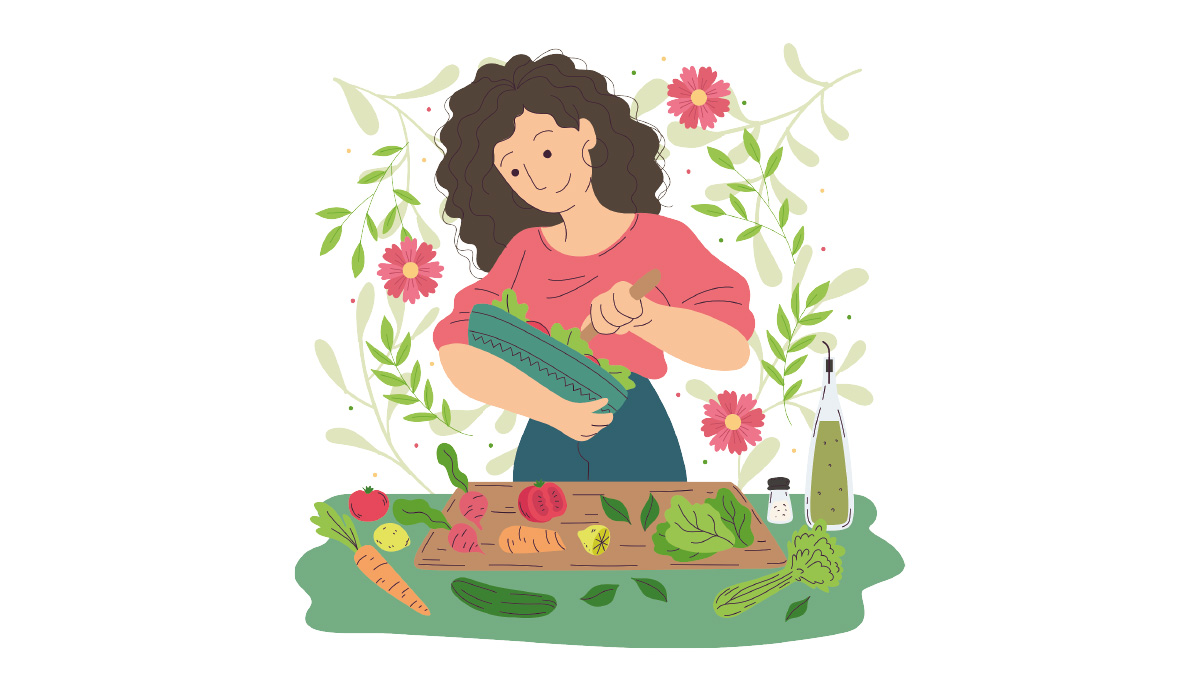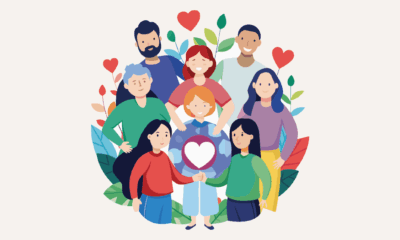Valores
Celebrando la riqueza de la gastronomía mexicana
Publicado
8 meses antesel
Por
Karla Torres
Por ser una de las más grandes en el mundo y Patrimonio Cultural Intangible de la Humanidad, la comida de nuestro país tiene un día nacional para ser festejada
La cocina de nuestro país se caracteriza por sus tradiciones ancestrales, su cultura, sus sabores y colores. Hoy es reconocida como una de las más grandes a nivel mundial, convirtiéndose en un orgullo para todos los mexicanos. Gracias a los esfuerzos de los actores del sector culinario y al Gobierno de México, el 16 de noviembre se designó como el Día Nacional de la Gastronomía Mexicana.
Un antecedente y una de las razones por las que se declara esta celebración es el nombramiento de la gastronomía mexicana como Patrimonio Cultural Intangible de la Humanidad en el 2010, por la Unesco, colocándola a la par de la cocina francesa y la dieta mediterránea, catapultándola a los más altos niveles.
Guía Michelin
Respecto al panorama gastronómico del 2024 en México, se puede percibir como alentador y positivo, sobre todo, con la llegada de la famosa guía Michelin, la cual, basándose en la calidad de los ingredientes, técnicas, originalidad, entre otros aspectos, ha otorgado 18 estrellas a restaurantes y chefs mexicanos de diferentes regiones del país, y destacando las menciones a otros 157 de Baja California, Baja California Sur, Oaxaca, Quintana Roo y Ciudad de México. Pero no sólo eso, también ha traído con ella controversia al dar una estrella a la taquería, de estilo street food, “El Califa de León”.
México se proyecta en grande con su gastronomía, busca reconocer y difundir en todo el mundo su diversidad y su valor cultural, que es parte de su identidad, teniendo como base la tríada perfecta; el maíz con 64 variedades, 59 consideradas nativas de la región; el chile con más de 200 especies; así mismo el frijol con alrededor de 70 variedades.
Tradición ancestral
No sólo sus ingredientes endémicos destacan a la gastronomía mexicana, una parte muy importante son las tradiciones y técnicas que se han mantenido durante miles de años, así mismo sus rituales ancestrales que giran en torno a temas culinarios, uno de los más conocidos, son las ofrendas a nuestros difuntos el Día de Muertos, que se celebra el mismo mes que el Día de la Gastronomía Mexicana.
Economía
Dentro del tema económico, según datos del portal Forbes, la industria alimentaria y de bebidas fue responsable del 7.6% del Producto Interno Bruto en el 2023, generando 17.6% de los empleos del mismo año, lo que es muy positivo para el sector gastronómico. En este sentido podemos sumar las Inversiones Extranjeras Directas de 802 millones de dólares.
Así mismo, en Data México, señalan que los estados con mayor grado de especialización son Oaxaca, Tlaxcala y Puebla, donde podemos encontrar una gran riqueza culinaria; por otro lado, los estados con mayores oportunidades de desarrollo en el sector gastronómico son Querétaro, Campeche y nuestro lindo “Estado Grande”, Chihuahua.
Hoy la gastronomía está dando mucho de qué hablar y va en constante crecimiento, es nuestro deber conservar, fomentar y conocer cada uno de los ámbitos que de ella emergen, compartiéndolo con nuestras familias. Te invitamos a observar todas aquellas actividades que se relacionan con ella, como la agricultura, el turismo, la educación entre otros, así sabremos apreciar su gran riqueza.
La triada azteca perfecta
Chile 200 especies
Frijol 70 variedades
Maíz 64 variedades
Celebrating the richness of Mexican gastronomy
Being one of the largest in the world and Intangible Cultural Heritage of Humanity, the food of our country has a national day to be celebrated.
The cuisine of our country is characterized by its ancestral traditions, its culture, its flavors and colors. Today it is recognized as one of the greatest in the world, becoming a source of pride for all Mexicans. Thanks to the efforts of the actors in the culinary sector and the Government of Mexico, November 16 was designated as the National Day of Mexican Gastronomy.
One of the antecedents and reasons for declaring this celebration is the naming of Mexican gastronomy as Intangible Cultural Heritage of Humanity in 2010 by UNESCO, placing it on par with French cuisine and the Mediterranean diet, catapulting it to the highest levels.
Michelin Guide
Regarding the gastronomic panorama of 2024 in Mexico, it can be perceived as encouraging and positive, above all, with the arrival of the famous Michelin guide, which, based on the quality of ingredients, techniques, originality, among other aspects, has awarded 18 stars to Mexican restaurants and chefs from different regions of the country, and highlighting the mentions to another 157 from Baja California, Baja California Sur, Oaxaca, Quintana Roo and Mexico City. But not only that, but it has also brought with it controversy by giving a star to the street food style taco shop “El Califa de León”.
Mexico projects itself in a big way with its gastronomy, it seeks to recognize and spread throughout the world its diversity and its cultural value, which is part of its identity, based on the perfect triad; corn with 64 varieties, 59 considered native to the region; chili with more than 200 species; as well as beans with around 70 varieties.
Ancestral tradition
Not only its endemic ingredients make Mexican cuisine stand out, but a very important part are also the traditions and techniques that have been maintained for thousands of years, as well as its ancestral rituals that revolve around culinary themes, one of the best known are the offerings to our deceased on the Day of the Dead, which is celebrated the same month as Mexican Gastronomy Day.
Economy
Within the economic theme, according to data from the Forbes portal, the food and beverage industry was responsible for 7.6% of the Gross Domestic Product in 2023, generating 17.6% of the jobs in the same year, which is very positive for the gastronomic sector. In this sense, we can add the Foreign Direct Investments of 802 million dollars.
Likewise, in Data Mexico, they point out that the states with the highest degree of specialization are Oaxaca, Tlaxcala and Puebla, where we can find great culinary wealth; on the other hand, the states with the greatest development opportunities in the gastronomic sector are Querétaro, Campeche and our beautiful “Big State”, Chihuahua.
Today, gastronomy is giving a lot to talk about and is constantly growing, it is our duty to preserve, promote and know each of the areas that emerge from it, sharing it with our families. We invite you to observe all the activities related to it, such as agriculture, tourism, education, among others, so we can appreciate its great wealth.
The perfect Aztec triad
Chili 200 species
Beans 70 varieties
Corn 64 varieties
Te puede interesar
Valores
‘Las mujeres se preparan mejor para tener una sociedad mejor’
Publicado
2 semanas antesel
01/07/2025Por
Luz María Sotelo
La abogada Sandra Ramona Velarde Vázquez platica a Visionarias sobre el trabajo social que realiza el Colegio de Abogadas A. C.
Si tienes un problema que amerite asesoría legal y la situación económica no te permita pagar un profesional que defienda tu causa, puedes acudir al Colegio de Abogadas A. C., donde te van a canalizar con el profesional adecuado para llevar tu caso.
Sobre como funciona dicho colegio, la abogada penalista Sandra Ramona Velarde nos cuenta que éste es una institución sin fines de lucro con 35 años de servicio, creado por unas mujeres expertas en Derecho que tenían la inquietud de ayudar a la sociedad en general con problemas de carácter legal.
El Colegio de Abogadas A. C. fue fundado en 1990 por la licenciada María de Jesús Carrera, a quien Velarde Vázquez describe como “una mujer muy aguerrida”. Junto con ella comenzaron la labor Juanita Quintero y Graciela de Arce, además de otras pioneras, que tenían la finalidad de ayudar a mujeres vulnerables.
Ese espíritu de servicio ha continuado con los años, por lo que ahora han ampliado las asesorías y brindan apoyos en asilos, psiquiátricos, el Cereso femenil, y otras instituciones.
Todo bajo su propio patrocinio, sin ayuda del Gobierno o cualquier otra institución.
Sandra nos cuenta que realizan diversas actividades para apoyar a los que menos tienen y acuden a la Feria de Servicios Profesionales, donde las mujeres pueden acercarse para platicarles su caso y entre todas buscar la solución al mismo. Por mes, nos cuenta que ayudan a alrededor de 100 mujeres diferentes.
Su experiencia
Para la licenciada Sandra Velarde la labor con las mujeres es de suma importancia, pues sabe que aún en esta época enfrentan situaciones en las que son vistas por debajo de los hombres, y en los juzgados no es la excepción.
Como abogada se ha enfrentado a la paridad de género, sobre todo cuando estaba embarazada y recuerda que antes daban prioridad a ellos, sin embargo, ahora tratan de dar carta abierta a todo mundo.
“Las mujeres van a pasos agigantados en la actualidad… anteriormente los mejores puestos se los llevaban los caballeros”, dice.
Es por esto último que lanza un importante mensaje, “todas las mujeres tenemos la capacidad de luchar por nuestros objetivos y nuestros sueños… Las mujeres tenemos una gran capacidad de trabajo y hacer muchas cosas, si tienes una meta en la mente no podemos decir ‘ya no puedo’… Las mujeres se preparan mejor para tener una sociedad mejor”, finaliza.

“Women Prepare Better to Build a Better Society”
Attorney Sandra Ramona Velarde Vazquez speaks to Visionarias about the social work carried out by the Colegio de Abogadas A.C.
If you’re facing a legal issue and can’t afford to pay for professional legal help, you can turn to the Colegio de Abogadas A.C., where they’ll connect you with the right professional to take on your case.
Criminal lawyer Sandra Ramona Velarde explains that this nonprofit organization, founded 35 years ago, was created by a group of women experts in law who felt compelled to help the broader community with legal problems.
The Colegio de Abogadas A.C. was founded in 1990 by attorney Maria de Jesus Carrera, whom Velarde Vazquez describes as “a very fierce woman.” She began the initiative alongside Juanita Quintero and Graciela de Arce, as well as other pioneering women who set out to support vulnerable women.
That spirit of service has carried on through the years. Today, their support extends beyond legal advice: they now offer aid in nursing homes, psychiatric institutions, the women’s correctional facility (Cereso femenil), and other institutions.
All of this is done on their own funding, with no assistance from the government or any other institution.
Sandra shares that they engage in various activities to support those in need, including participating in the Professional Services Fair, where women can approach them to share their cases and work together to find a solution. She says they help about 100 different women each month.
Her Experience
For attorney Sandra Velarde, working with women is of great importance because she knows that—even today—women still face situations where they are viewed as inferior to men, and the courts are no exception.
As a lawyer, she has faced gender inequality, especially during her pregnancy, recalling how men were often given priority in the past. Thankfully, she says, times are changing, and efforts are being made to offer equal opportunity to all.
“Women are advancing by leaps and bounds today… in the past, the best positions were always taken by men,” she says.
For this reason, she shares an important message:
“All women can fight for our goals and dreams… Women have a great capacity for work and for doing many things. If you have a goal in mind, we can’t say, ‘I can’t anymore’… Women prepare better to build a better society.”

Comparte Alejandro Castillo con Mujeres Visionarias el proyecto de la UACJ para acercar a la comunidad al arte en cualquiera de sus expresiones
Pensando en beneficiar a toda la comunidad fronteriza, la Universidad Autónoma de Ciudad Juárez (UACJ), en su nueva administración, ha reestructurado su proyecto cultural, el cual da cabida a cualquier persona, ya sea como espectador o como parte del talento artístico de esta ciudad.
Sobre este proyecto, el director general de Difusión Cultural y Divulgación Científica, Alejandro Castillo González, platica a Visionarias sobre los principales espacios y las actividades que en ellos podemos encontrar.
Pueblos originarios
Como parte importante del nuevo plan están los integrantes de pueblos originarios asentados en Ciudad Juárez, quienes generan talleres de acuerdo con sus costumbres y en los que la comunidad puede participar.
Alejandro Castillo nos dice que la UACJ es la única universidad de la zona norte que cuenta con el proyecto de culturas populares, “es un proyecto muy inclusivo y va muy enfocado a la cuestión de abrir las posibilidades para todos los que pertenecen a los pueblos originarios para poder visibilizarlos, para poder generar estas posibilidades de impacto dentro de la comunidad para que se les genere un respeto, se les genere la preservación de la cultura, de las costumbres”, menciona.
Orquesta Sinfónica Profesional
Otro proyecto que la universidad consideró importante fue la reestructuración de la Orquesta Sinfónica Profesional, la cual estuvo pausada desde el año 2018 y volvió con nuevos bríos el pasado mes de abril.
“Este proyecto lo estuvimos trabajando desde el primer día que empezamos la administración, en este año se abrió una convocatoria para poder invitar a músicos profesionales que puedan participar, se les contrató para poder conformar esta orquesta, se hicieron audiciones, tuvimos más de 110 personas, músicos profesionales que participaron para todas las secciones, y de esos se conformaron los 47 que son de esta orquesta sinfónica”, comenta.
Para asistir a las presentaciones de la orquesta, así como al resto de los eventos artísticos de la UACJ, Castillo González recomienda estar atentos a la agenda que se publica en la página www.uacj.mx, así como en la página de Facebook: Arte y Cultura UACJ.
Los centros culturales
Pero sin duda una de las tareas más importantes de Alejandro Castillo y su equipo de trabajo es el impulso al Centro Cultural de las Fronteras y el Teatro de la Universidad, abiertos a la pintura, escritura, baile, canto, actuación y toda muestra de expresión.
“El Centro Cultural de las Fronteras, en este centro tenemos proyectos de divulgación científica, de fomento a la lectura, tenemos visitas guiadas, exposiciones, una sala inmersiva que es la única que tiene la ciudad, el café, tenemos una librería, una tienda artesanal, aquí se imparten las clases de Bellas Artes, en este mismo edificio, es un centro cultural que se ofrece de manera gratuita a toda nuestra comunidad”, dice.
Hace especial énfasis en la sala de cine, que asegura “tiene una calidad mayor a lo regular que pueden encontrar en cualquier sala, con una programación de jueves a sábado, constante”.
El segundo centro es el Teatro de la Universidad, donde afirma Castillo se están incrementando los eventos gratuitos, estos van desde rondalla, mariachi, ballet clásico, entre otros.
“La universidad en estos momentos es la que lleva la agenda cultural de toda la ciudad”, presume el entrevistado.
Agrega que “la comunidad debe sentirse muy orgullosa de tener una agenda y una preocupación por parte de la universidad en cuestión de arte y cultura… Yo les recomiendo que siempre estén al pendiente de lo que ofrece la universidad porque siempre hay actividades, para familias, para venir todos juntos… una película, una exposición, un concierto, siempre gratuitos”, concluye.}

Culture for All
Alejandro Castillo shares with Mujeres Visionarias the UACJ project to bring the community closer to art in all its forms.
With the aim of benefiting the entire border community, the Autonomous University of Ciudad Juárez (UACJ), under its new administration, has restructured its cultural project, which welcomes everyone, whether as a spectator or as part of the city’s artistic talent.
Regarding this project, the General Director of Cultural Diffusion and Scientific Outreach, Alejandro Castillo González, tells Visionarias about the main spaces and the activities available there.
Indigenous Peoples
An important part of the new plan are members of Indigenous peoples settled in Ciudad Juárez, who create workshops based on their customs, in which the community can participate.
Alejandro Castillo tells us that the UACJ is the only university in the northern region that has a popular cultures project. “It’s a very inclusive project and is very focused on opening up opportunities for all Indigenous peoples to make them visible, to generate these opportunities for impact within the community, fostering respect for them and promoting the preservation of their culture and customs,” he mentions.
Professional Symphony Orchestra
Another project the university considered important was the restructuring of the Professional Symphony Orchestra, which had been on hiatus since 2018 and returned with renewed vigor last April.
“We have been working on this project since the first day we took office. This year, a call was opened to invite professional musicians to participate. They were hired to form this orchestra. Auditions were held. We had more than 110 people, professional musicians, participate in all sections, and from those, the 47 members of this symphony orchestra were formed,” he comments.
To attend the orchestra’s performances, as well as the rest of the UACJ’s artistic events, Castillo González recommends keeping an eye on the agenda published on the website www.uacj.mx, as well as on the Facebook page: Arte y Cultura UACJ.
Cultural Centers
But without a doubt, one of the most important tasks of Alejandro Castillo and his team is promoting the Centro Cultural de las Fronteras and the University Theater, open to painting, writing, dancing, singing, acting, and all forms of expression.
“At the Centro Cultural de las Fronteras, we have projects for scientific outreach and reading promotion. We have guided tours, exhibitions, an immersive theater, which is the only one in the city, a café, a bookstore, and a craft shop. Fine Arts classes are taught here, in this same building. It’s a cultural center offered free of charge to our entire community,” he says.
He places special emphasis on the movie theater, which he assures “has a higher quality than what you can find in any theater, with a constant program from Thursday to Saturday.”
The second center is the University Theater, where Castillo says free events are increasing, ranging from rondallas, mariachis, classical ballet, and more.
“The university is currently the one driving the cultural agenda for the entire city,” the interviewee boasts.
He adds that “the community should feel very proud that the university has an agenda and a concern for art and culture… I recommend that they always be aware of what the university offers because there are always activities for families, for everyone to come together… a film, an exhibition, a concert, always free,” he concludes.

Desarrollar esta habilidad nos permitirá disfrutar de una lectura de calidad
Leer es una habilidad que adquirimos a muy temprana edad, es, probablemente, la primera que nos enseñan al comenzar nuestro recorrido escolar. Una vez que aprendemos, estamos leyendo siempre, pasar los ojos por las letras y formar palabras es una actividad que se vuelve casi mecánica, pero ¿qué tanto de lo que capta nuestra mirada compremos a cabalidad?
La comprensión lectora es un proceso, y como tal se compone de fases y operaciones mentales, como la atención, secuenciación y asimilación de ideas que pueden relacionarse con otras que aprendimos previamente. Es decir, es la habilidad de interpretar, analizar y reflexionar el texto que tenemos en nuestras manos. No se trata sólo de decodificar las palabras, sino de captar su mensaje y utilizarlo en beneficio propio.
Lo anterior hace evidente la importancia de adquirir, mantener y mejorar esta competencia, no sólo porque es fundamental para el aprendizaje, sino porque favorece la participación cívica, la comunicación efectiva y el desarrollo socioemocional. Además, contribuye al desarrollo personal y social, pues fortalece la autoestima y la autoconfianza, también hace crecer la empatía y la capacidad de ponerse en el lugar de los otros, sin dejar de lado el enriquecimiento del vocabulario y la adquisición de conocimientos para la toma de decisiones informadas.
Sabemos que en la actualidad la prisa que mueve al mundo no siempre nos permite sentarnos a disfrutar de una buena lectura, la avalancha de datos que nos bombardea y las constantes notificaciones de las redes sociodigitales son los principales contrincantes para prestar la atención necesaria. Por eso te invitamos a que sigas estos breves consejos para que tengas una lectura más profunda:
- Encuentra lo que te motiva, la lectura puede ser un espacio de relajación, por ello elegir los temas de tu interés es de suma importancia (sin importar que se trate de un “gusto culposo”).
- Organiza tu tiempo, no es necesario leer dos horas seguidas, 10, 15 o 20 minutos bastan, eso sí, aleja los distractores.
- Si te es posible, toma notas, haz dibujos o esquemas y busca el significado de las palabras que te causen duda (para esto, tu celular también puede ser un aliado).
- Elije el formato de tu preferencia, en papel o digital, lo importante es tu comodidad.
Que las palabras te ayuden a convertirte en una persona más segura e interesada por el mundo.
The importance of reading comprehension
Developing this skill will allow us to enjoy quality reading.
Reading is a skill we acquire at a very early age; it’s probably the first one we’re taught at the beginning of our school years. Once we learn, we’re always reading. Moving our eyes over letters and forming words becomes an almost mechanical activity. But how much of what we see through do we truly grasp?
Reading comprehension is a process, and as such, it consists of stages and mental operations, such as paying attention, sequencing, and assimilating ideas that can be related to others we’ve previously learned. In other words, it’s the ability to interpret, analyze, and reflect on the text in our hands. It’s not just about decoding words, but also about grasping their message and using it to our advantage.
The above makes evident the importance of acquiring, maintaining, and improving this skill, not only because it is essential for learning, but also because it fosters civic participation, effective communication, and socio-emotional development. Furthermore, it contributes to personal and social development, as it strengthens self-esteem and self-confidence, and increases empathy and the ability to put oneself in the shoes of others. This includes enriching vocabulary and acquiring knowledge for making informed decisions.
We know that today’s fast-paced world doesn’t always allow us to sit down and enjoy a good read. The avalanche of data that bombards us and the constant notifications from social media are the main obstacles to paying the necessary attention. Therefore, we invite you to follow these brief tips for a more in-depth reading experience:
- Find what motivates you. Reading can be a place of relaxation, so choosing topics that interest you is of utmost importance (regardless of whether it’s a “guilty pleasure”).
- Organize your time. It’s not necessary to read for two hours straight; 10, 15, or 20 minutes is enough. Just keep distractions away.
- If possible, take notes, draw pictures, or sketches, and look up the meanings of words that leave you unsure (your cell phone can also be an ally for this).
- Choose the format you prefer, paper or digital; the important thing is your comfort.
May words help you become a more confident and interested person in the world.










